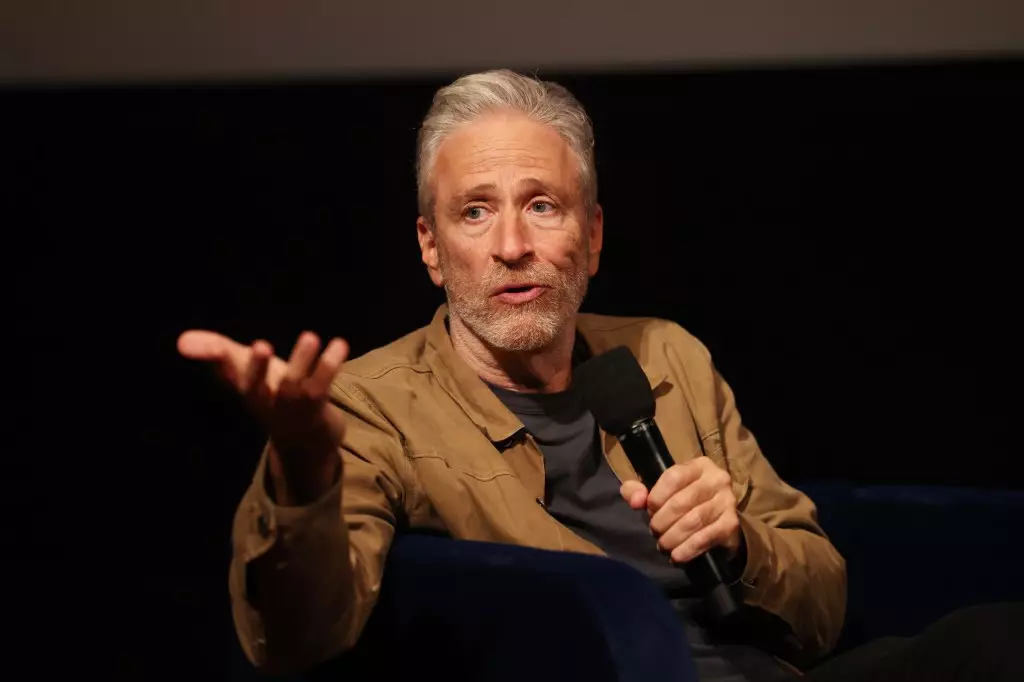In an era dominated by tech giants such as Apple, Netflix, and Amazon, Jon Stewart’s impassioned defense of writers takes on profound significance. While technological advancement has undoubtedly transformed entertainment, Stewart highlights a concerning shift: the diminishing role of writers in the creative process. As these companies assert control over content production, the essence of storytelling—a craft deeply rooted in human connection—appears to be at stake. This is troubling because the intricacies and emotional depth that writers bring to their work are often diluted when reduced to mere product lines in a corporate agenda.
The Human Element in Storytelling
Stewart emphasizes the artistry of writing, positioning it as more than just a job; it’s a medium for connection. As technology companies streamline production and prioritize efficiency, this essential human element risks being overshadowed. The writer’s room—a collaborative haven for creative minds—gets increasingly downsized and simplified, often leading to the loss of diverse perspectives. When large corporations commandeer the storytelling process, they may inadvertently strip away the nuances that resonate with audiences, leaving behind a shell of potential that lacks depth and authenticity.
AI’s Presence in Creative Spaces
One of the more provocative moments in Stewart’s commentary came when he jokingly noted that his speech was crafted by AI. This raises a critical point about the intersection of technology and creativity; as artificial intelligence becomes more capable of generating content, the uniqueness of human expression must not be trivialized. While AI can assist in certain tasks, it lacks the emotional intelligence and lived experience that writers imbue into their narratives. The challenge lies in finding a balance where technology augments creativity without eclipsing the essential contributions of human writers.
Community and Connection in Live Performances
Reflecting on the revival of communal experiences, Stewart remarks on the palpable need for human connection—an aspect highlighted through live performances. In a world often characterized by isolation and digital interactions, these gatherings serve as a vital release, nurturing a sense of belonging and collective identity. The audience’s heightened engagement reveals a universal thirst for meaningful interactions. Stewart’s acknowledgment of this need emphasizes how vital it is to cultivate environments that facilitate human connection, particularly in a landscape increasingly overshadowed by impersonal technology.
Acknowledging the Craft of Comedy
Stewart’s return to “The Daily Show” highlights the importance of continuity in creative teams. Praising the ‘phenomenal’ talents of those who remained since his departure, he underscores the value of familiarity and evolution within the workplace. This speaks to a larger narrative about mentorship, growth, and the ongoing commitment to excellence in comedy. The creative process, bolstered by the tenacity of individuals who remain dedicated to their craft, helps ensure that humor remains sharp, socially relevant, and impactful. Stewart’s gratitude towards his team reflects his understanding of the profound collaborative efforts that underpin successful storytelling, a sentiment that resonates deeply in today’s entertainment climate.
